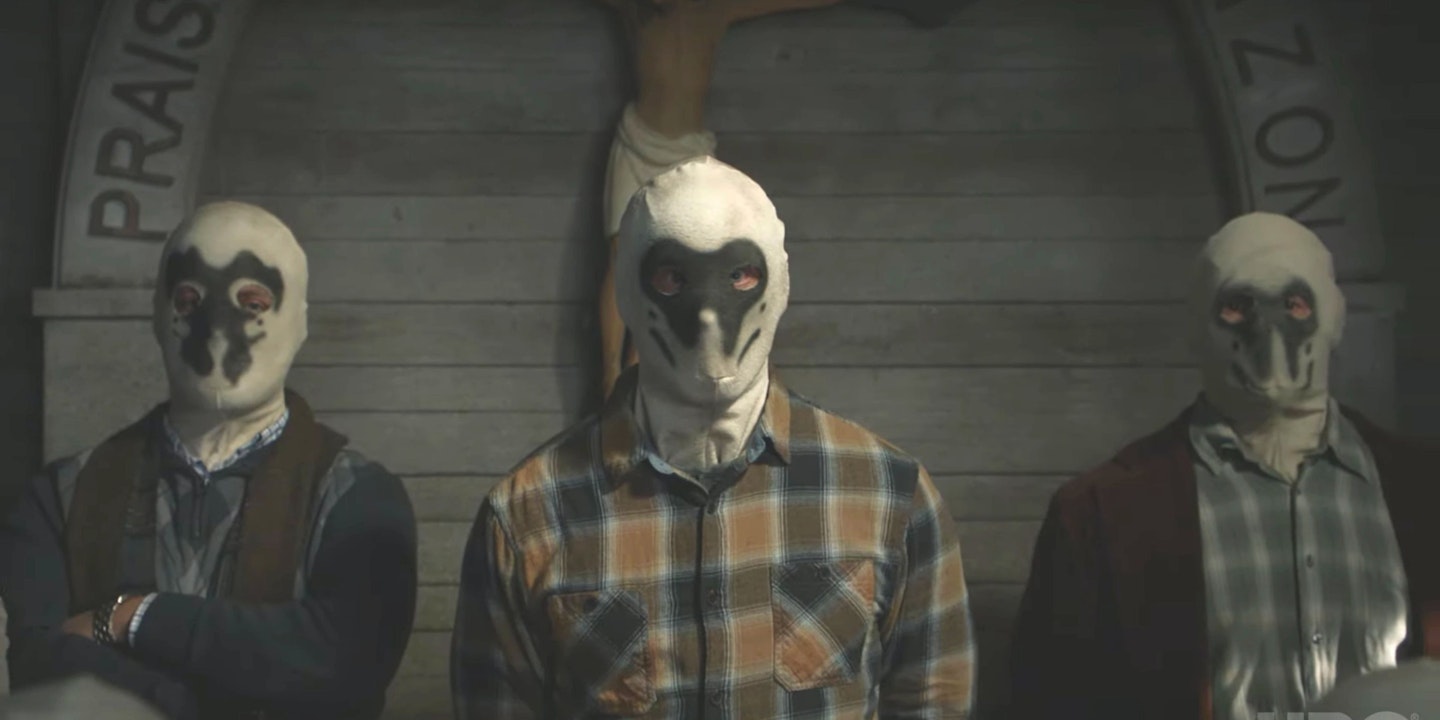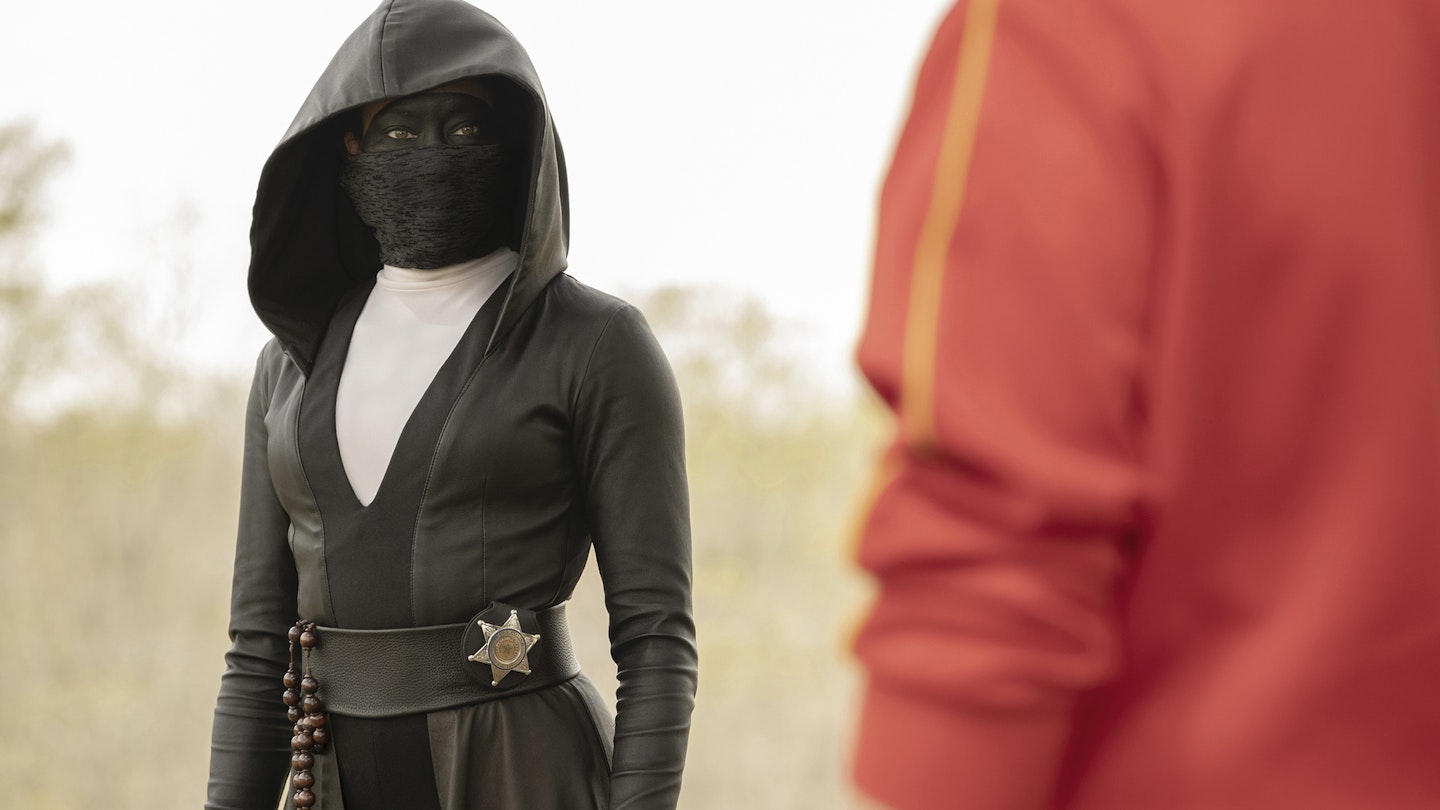Episodes reviewed: 1-6
A decade after Zack Snyder’s reverent but misguided film adaptation of Alan Moore, Dave Gibbons and John Higgins’s acclaimed comic Watchmen, Damon Lindelof has taken on the unenviable task of adapting the material for TV. But the show (like the movie, disowned by Moore) sidesteps the issue of filming the notoriously ‘unfilmable’ comic, by making it a sequel based in the same universe. It’s set in an alternate history 2019 — where Robert Redford has been president for 30 years, the USA is finally paying reparations, and it frequently rains squid.

The history of this alternate Oklahoma and its inhabitants unfolds through deliberate, organic world building, revealing details and backstory incidentally. Making its intentions clear from the start, the show opens with a harrowing dramatisation of the Black Wall Street Massacre in 1921 Tulsa, in which southern whites, assisted by the authorities and the KKK, destroyed a Black-owned neighbourhood and murdered hundreds of residents. It’s as upsetting as it is essential, Watchmen’s story of abuse of authority recontextualised from Cold War paranoia to questions about the endurance of white supremacy, the culpability of the law in assisting it, and the erasure of black history. It all revolves around Angela Abar (an absolutely magnetic Regina King), a costumed police detective in modern day Tulsa with the moniker Sister Night, kitted out in a flowing black robe and mask. The history of the Watchmen universe intertwines with her own in fascinating, often surprising ways.
The conflict in the modern day takes place between the masked police of Tulsa and a white supremacist group named the Seventh Kavalry, inspired by the writings of Rorschach’s journal, twisting his already prejudiced monologues into a racist, anti-reparations manifesto. But the conflict isn’t as simple as ‘the police versus racists’, hinted at early on by the visual mirroring of the two forces. Later, one of the comic’s most famous panels, the smiley-face badge stained with blood is recreated with a police badge, a murdered officer acting as a parallel to The Comedian.
Lindelof's Watchmen is a triumph not because it tries to replicate the story, but because of it uses the material to say something new.
Though it’s intense material, it isn’t too self-serious — the show is powered by a pulsing industrial score from Trent Reznor and Atticus Ross, the dialogue crackles, and the visuals meet it in quality; each burst of action walks a line between style and extreme discomfort, when it’s not straight-up bizarre (consider a sequence where a herd of cows is mowed down with machine-guns). There’s a range of colourful characters surrounding Angela, such as the reclusive Looking Glass (Tim Blake Nelson, a native Tulsan), Jean Smart as a weary, cynical Laurie Blake, now hunting vigilantes for the FBI, and Jeremy Irons as a violent, deranged take on an old foe.
Though the sustained mystery of the early episodes might test patience, it’s more than worth the wait, asking difficult questions along the way to a game-changing reveal that’s both loving towards the comic and daring enough to make some bold rewrites. Lindelof’s Watchmen is a triumph not because it tries to replicate Moore and Gibbons’ story, but because of it uses the material to say something new.
